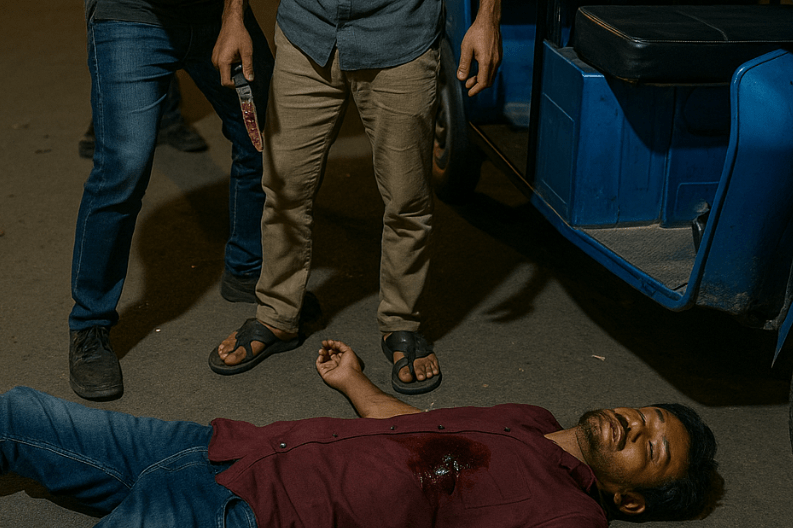New Delhi, October 7: The tragic incident involving E-Rickshaw driver in Delhi shocked the community near Dwarka Mor metro station, leaving a family heartbroken. Late on the night of October 4-5, Mohit, a 35-year-old e-rickshaw driver, lost his life during a fight over passengers. What began as a simple argument quickly turned into a violent confrontation.
This incident took place in the Mohan Garden area of West Delhi. Mohit lived in Gandhi Chowk, Sainik Enclave, and was known as a hardworking man who supported his family with dedication. Around midnight, several e-rickshaw drivers gathered near the metro station to wait for passengers. Among them, Sunil Kumar and Tejraj Joshi began arguing over customers.
Seeing the situation escalate, Mohit tried to calm things down and support Sunil Kumar. However, the argument became aggressive. In a sudden act of violence, Tejraj Joshi, a 27-year-old driver from Nepal’s Dadeldhura district, stabbed Mohit in the abdomen with a sharp weapon. Joshi had been living in Mohan Garden with his wife and five-year-old son for about a year.
Soon after, a police patrol team found the injured Mohit and took him to Safdarjung Hospital. Despite doctors’ efforts, he died from his injuries. The police quickly arrested Tejraj Joshi and began investigating the case. Officials say that rising competition among e-rickshaw drivers is fueling such violent conflicts in Delhi.
Reports show that incidents involving e-rickshaw drivers have increased by nearly 20% in the past two years. Experts link this rise to overcrowded markets, poor regulation, and lack of awareness about conflict resolution. Many drivers work long hours with little rest, which often leads to frustration and tension.
E-rickshaws remain a vital part of India’s urban transport system. They are affordable, eco-friendly, and ideal for short-distance travel. In 2021, Punjab recorded the highest number of registered e-rickshaws, reflecting India’s growing shift toward sustainable transport. In the Chandigarh Tricity region, including Mohali, the demand for e-rickshaws continues to grow as more people rely on them daily.
However, with this rapid growth comes a rise in challenges. Competition for passengers is intense, especially in busy areas like Delhi. Many drivers say that disputes over routes and fares have become common. Without proper regulation or support, these conflicts sometimes turn violent.
Authorities believe that better organization and communication among drivers can help prevent future tragedies. The Delhi government and local transport unions are now discussing measures to improve driver safety. These may include regular training, counseling sessions, and stricter enforcement of local transport laws.
In addition, experts suggest introducing driver welfare programs that offer financial and emotional support. Many drivers face stress due to unstable income and a lack of security. Creating awareness about peaceful conflict resolution can save lives and reduce tension within the transport sector.
As the community mourns Mohit’s death, residents of Mohan Garden have called for stronger policing in busy driver zones. They also urge the government to establish help centers for e-rickshaw drivers facing disputes or harassment. The local police have promised to monitor such hotspots more closely to ensure safety.
In conclusion, the tragic incident involving E-Rickshaw driver in Delhi serves as a painful reminder of the struggles faced by urban transport workers. However, it highlights the urgent need for safety, respect, and support within this growing sector. Everyone deserves to earn a living without fear, and through community cooperation and awareness, such tragedies can be prevented.



